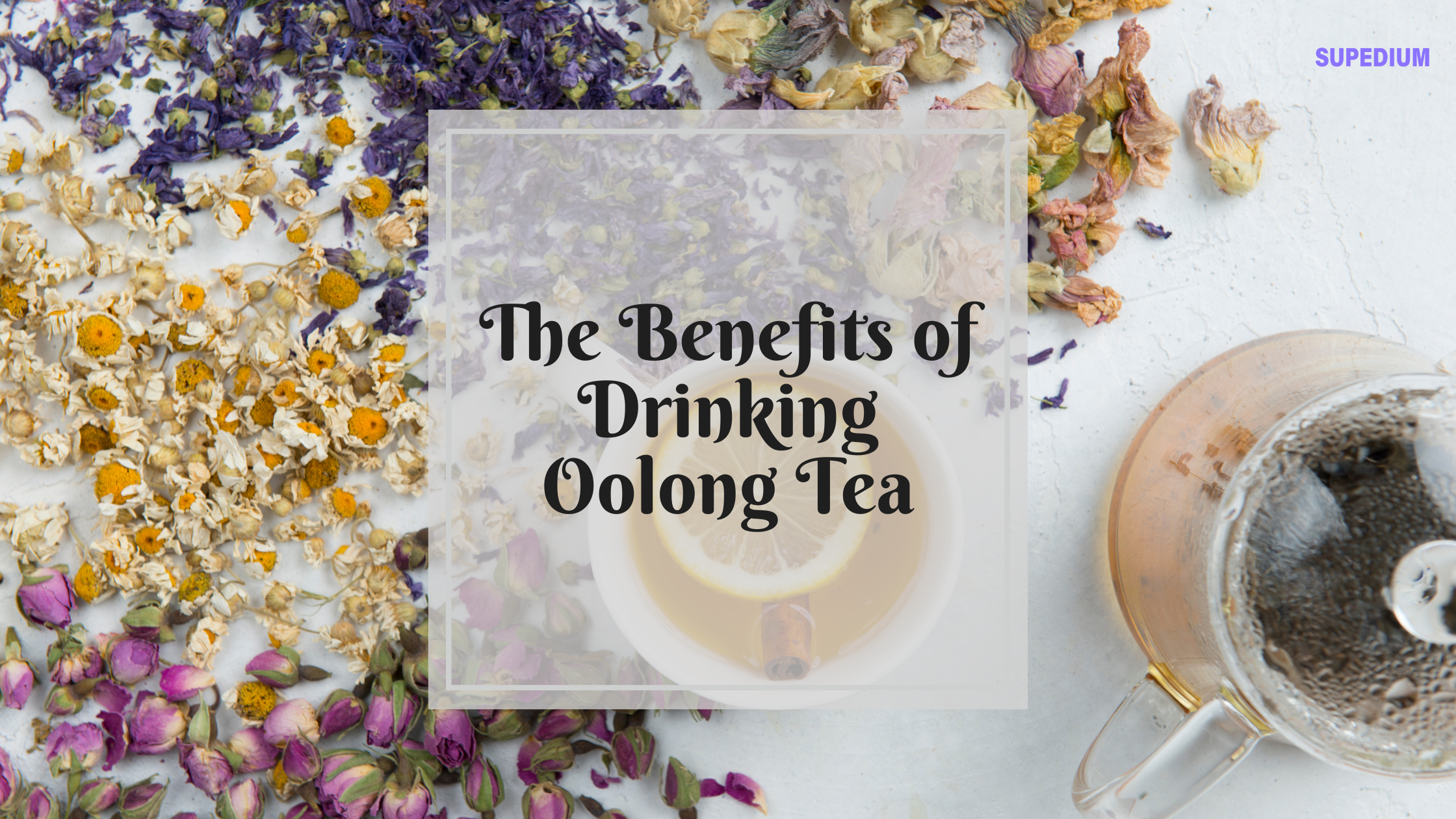Table of Contents
![]()
Oolong tea, a traditional Chinese beverage with a rich history and distinct flavor, offers numerous health benefits that make it a valuable addition to your daily diet. With a unique production process that positions it between green and black tea, oolong tea provides a variety of health advantages backed by scientific research. This article explores the nutritional profile, health benefits, scientific evidence, and practical considerations of incorporating oolong tea into your lifestyle.
Nutritional Profile of Oolong Tea
Oolong tea is renowned for its complex flavor and diverse health benefits, which can be attributed to its unique production process. Unlike green tea, which is unoxidized, and black tea, which is fully oxidized, oolong tea undergoes a partial oxidation process. This results in a flavor profile that ranges from floral and light to rich and toasty.
Key Nutrients
Oolong tea is a rich source of antioxidants, including polyphenols and catechins, which help combat oxidative stress and inflammation. It also contains essential vitamins and minerals such as vitamin C, manganese, and potassium. Compared to green and black teas, oolong tea offers a balanced caffeine content that provides a mild energy boost without the jitteriness often associated with higher caffeine levels.
Health Benefits
Cardiovascular Health
One of the most notable benefits of oolong tea is its positive impact on cardiovascular health. Studies have shown that regular consumption of oolong tea can help lower levels of LDL cholesterol, often referred to as “bad” cholesterol, while increasing HDL cholesterol, the “good” cholesterol. This balance can contribute to a reduced risk of heart disease. Additionally, oolong tea may help regulate blood pressure, promoting overall cardiovascular health.
Weight Management
Oolong tea has been associated with weight management and metabolic enhancement. Research indicates that oolong tea can boost metabolism and increase fat oxidation, making it a valuable aid for those looking to manage their weight. The polyphenols in oolong tea may help to activate enzymes that break down fat, thereby promoting a healthier body composition.
Mental Alertness and Cognitive Function
For those seeking improved mental clarity, oolong tea offers cognitive benefits that enhance focus and concentration. The moderate caffeine content, combined with the amino acid L-theanine, contributes to improved alertness and cognitive function. This combination helps balance the stimulating effects of caffeine with a calming influence, promoting better mental performance.
Digestive Health
Oolong tea can also support digestive health. The antioxidants in oolong tea may help maintain a healthy gut environment by promoting the growth of beneficial bacteria. Additionally, oolong tea aids in digestion, which can be beneficial for weight management and overall gastrointestinal health.
Skin Health
Oolong tea’s antioxidant properties extend to skin health. By reducing oxidative stress, oolong tea may help slow down the aging process and improve skin elasticity. Regular consumption can contribute to a more youthful appearance and better skin hydration.
Other Potential Benefits
Bone Health
Preliminary research suggests that oolong tea may positively impact bone health. Some studies have indicated that regular consumption of oolong tea could be linked to increased bone density and a reduced risk of osteoporosis. While more research is needed to confirm these findings, incorporating oolong tea into a balanced diet may contribute to overall bone health.
Stress Reduction and Relaxation
Oolong tea is also known for its calming effects. The presence of L-theanine in oolong tea helps reduce stress and promote relaxation, making it an excellent choice for those looking to unwind. Compared to other types of tea, oolong tea’s balanced caffeine content and calming properties make it a suitable option for reducing stress without causing excessive drowsiness.
Scientific Research and Evidence
Several studies support the health benefits of oolong tea. Research has demonstrated that oolong tea can improve cardiovascular health by reducing LDL cholesterol levels and promoting HDL cholesterol. Other studies have shown its effectiveness in boosting metabolism and aiding in weight management. The cognitive and digestive benefits of oolong tea have also been explored, with evidence suggesting improved mental performance and digestive health.
However, it’s important to note that while the existing research is promising, more comprehensive studies are needed to fully understand the extent of these benefits and any potential limitations.
How to Incorporate Oolong Tea into Your Diet
Recommended Consumption Levels
To reap the benefits of oolong tea, it is generally recommended to consume 1-3 cups per day. This amount provides a good balance of antioxidants and other beneficial compounds without excessive caffeine intake. Drinking oolong tea in the morning or early afternoon is ideal to avoid interfering with sleep.
Brewing Tips and Techniques
For the best flavor and health benefits, brew oolong tea at 180-200°F (80-90°C) for 3-5 minutes. Using high-quality loose leaves will enhance the taste and nutritional value of your tea. Adjust the brewing time based on your taste preference—shorter brewing times yield lighter flavors, while longer times produce richer, stronger tea.
Potential Risks and Considerations
Caffeine Sensitivity
While oolong tea contains moderate levels of caffeine, individuals sensitive to caffeine should be cautious. Excessive consumption can lead to side effects such as insomnia, jitteriness, or digestive issues. Opting for lower-caffeine teas or limiting intake can help mitigate these effects.
Interaction with Medications
Oolong tea may interact with certain medications, including blood thinners and some antihypertensive drugs. It is advisable to consult with a healthcare provider before adding oolong tea to your diet, especially if you are on medication or have specific health concerns.
Conclusion
Oolong tea offers a range of health benefits, from improved cardiovascular health and weight management to enhanced mental alertness and digestive support. Its unique combination of antioxidants, moderate caffeine, and calming properties make it a valuable addition to a balanced diet. By incorporating oolong tea into your daily routine, you can enjoy its numerous health advantages while savoring its distinctive flavor. As with any dietary change, it’s essential to consider individual health needs and consult with a healthcare provider to ensure the best outcomes.
Share This





Be the first to comment